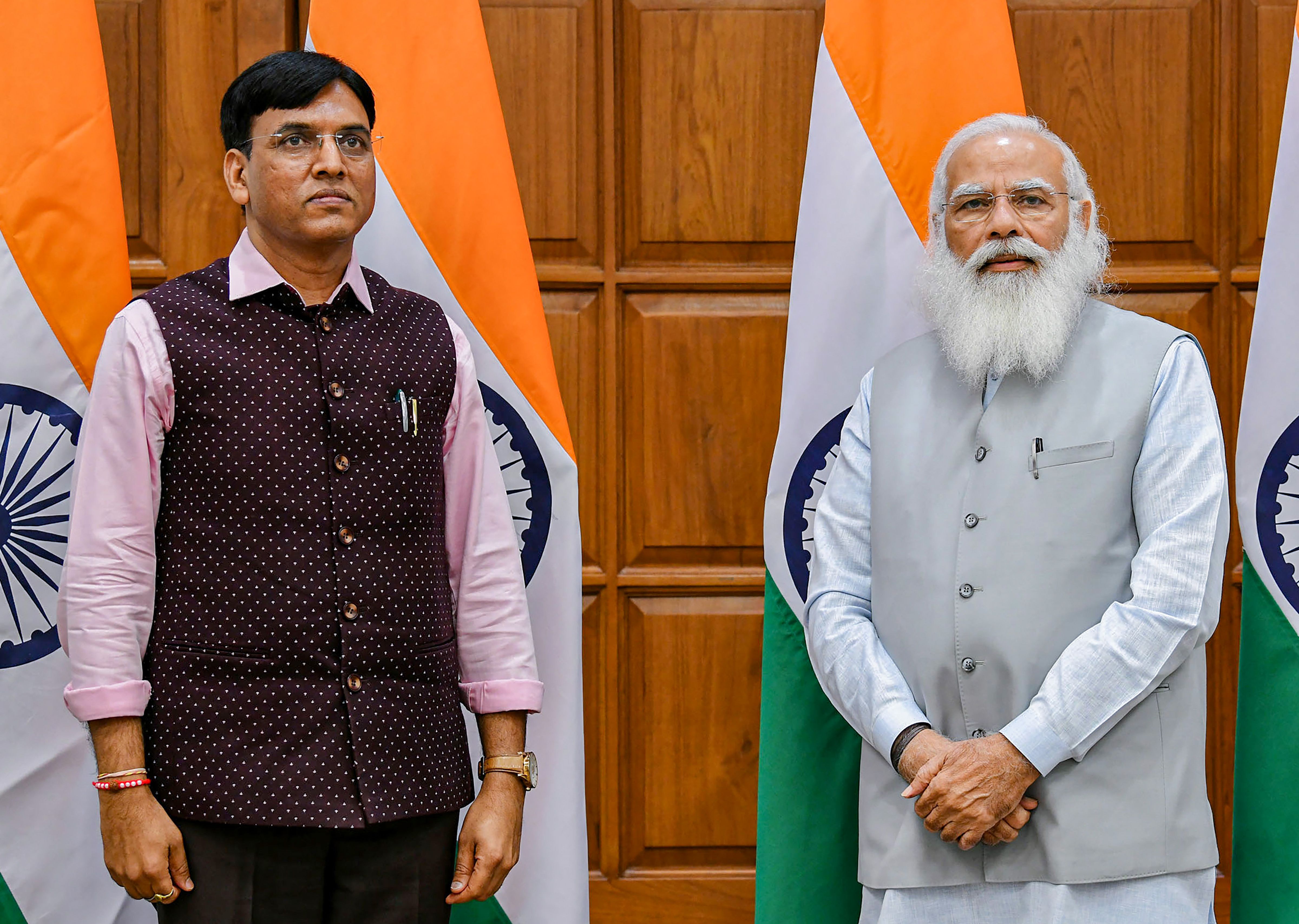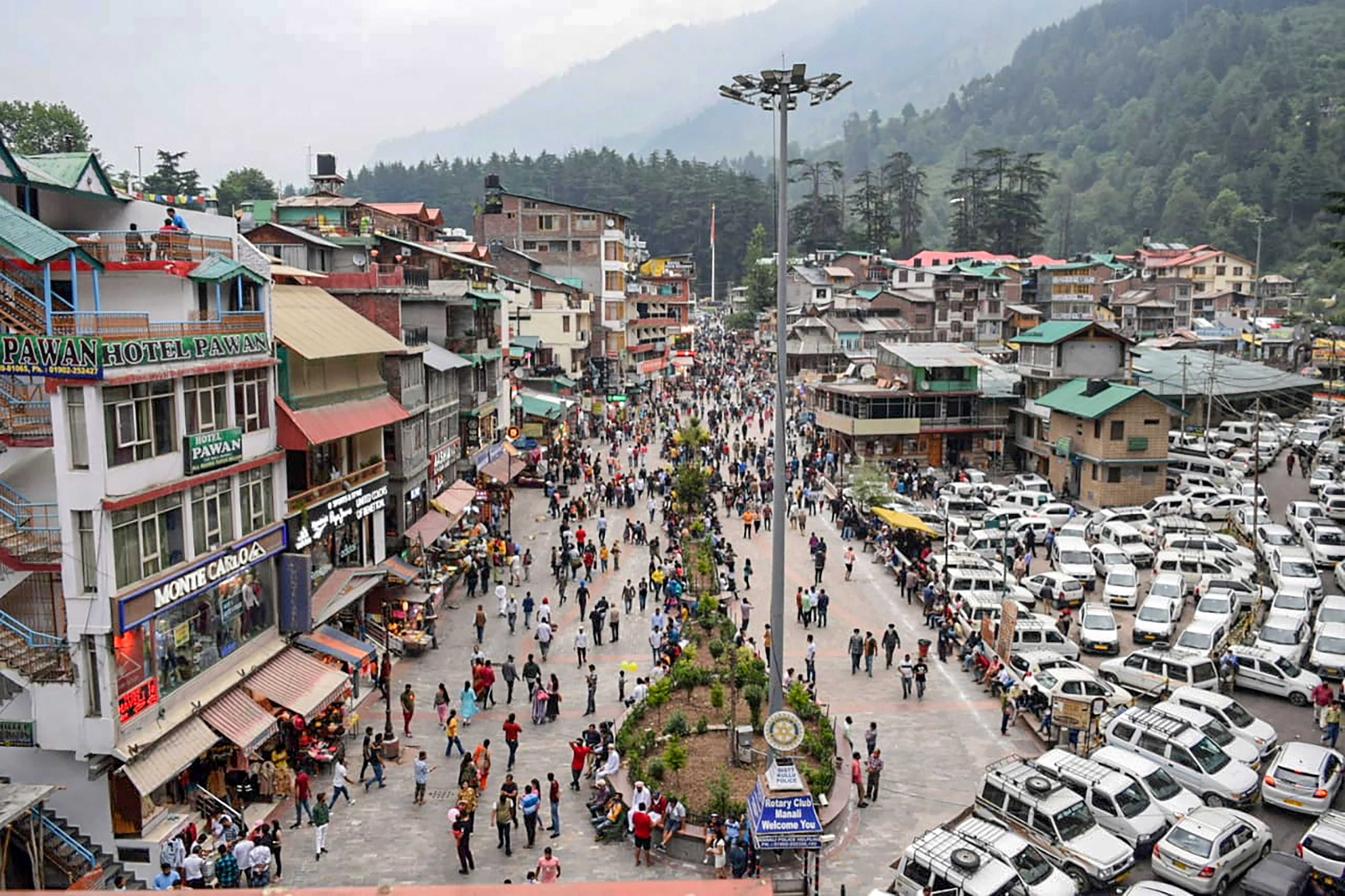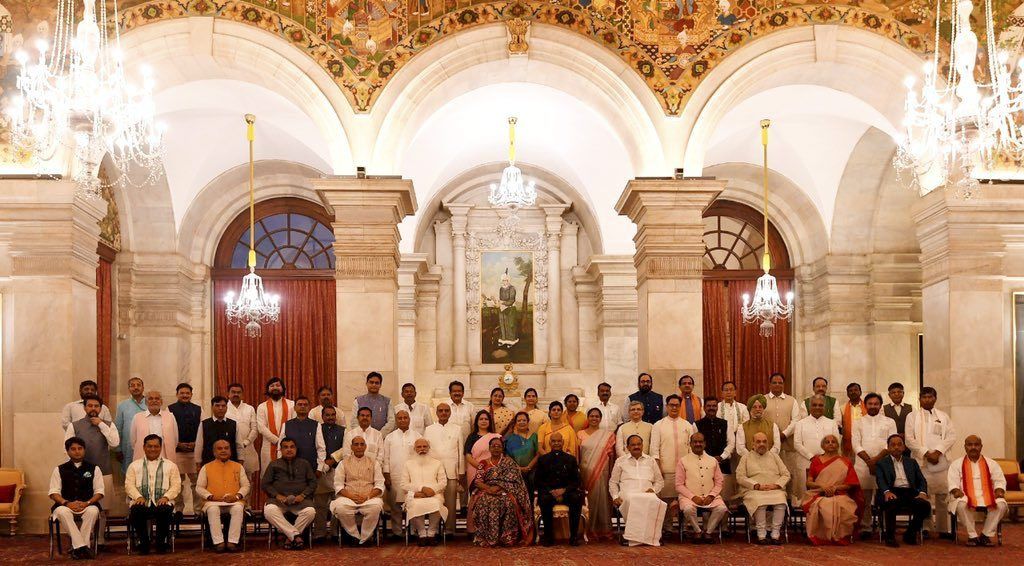New Delhi: A day after the major reshuffle and expansion of the Union Cabinet, several new ministers including Mansukh Mandaviya (Health Minister), Ashwini Vaishnaw (Railways and IT Minister), Kiren Rijiju (Law Minister), Anurag Thakur (Information and Broadcasting Minister) and others took charge of their assignments on Thursday. Not only this, but Prime Minister Narendra Modi also carried out back-to-back meetings of the union cabinet and council of ministers on Thursday evening, during which some key decisions were made.
Among the major announcements that were made post the meetings were about the Cabinet’s approval to a Rs 23,123-crore package for improving health infrastructure to fight COVID-19 as part of which around 2.4 lakh medical beds and 20,000 ICU ones would be created with a special focus on paediatric care. Also Read - 5 Fruit Combinations That You Must Avoid

Newly-appointed Health Minister Mansukh Mandaviya with Prime Minister Narendra Modi before taking oath. (PTI Photo)
Here’s all you need to know about the Centre’s second emergency Covid package to improve facilities in the health sector across the country:
- The package will be implemented over the next nine months till March 2022.
- This is the second phase of the Emergency Response and Health System Preparedness Package as the Central government had given Rs 15,000 crore earlier for setting up Covid-dedicated hospitals and health centres across the country.
- Under the new package, the Centre would provide Rs 15,000 crore and states Rs 8,123 crore, and the plan would be implemented jointly by them across all the 736 districts to improve medical infrastructure at primary and district health centres.
- Around 2.4 lakh normal medical beds and 20,000 ICU beds would be created of which 20 percent would be specially earmarked for children, he said.
- Storage facilities for oxygen and medicines would also be created at district level under the plan.
- States and UTs would be supported to create paediatric units in all 736 districts and to establish Paediatric Centre of Excellence in each state and UT (either in medical colleges, state government hospitals or central hospitals such as AIIMS, INIs, etc) for providing tele-ICU services, mentoring and technical hand-holding to the district paediatric units. They would be supported to augment 20,000 ICU beds in public healthcare system out of which 20 per cent will be pediatric ICU beds.
- The Phase-II of the package has central sector (CS) and centrally-sponsored schemes (CSS) components. Under the central sector components, support would be provided to central hospitals, All India Institutes of Medical Sciences, and other Institutions of National Importance under DoHFW for repurposing 6,688 beds for COVID-19 management. Under the CSS components, efforts are aimed at strengthening district and sub-district capacity for an effective and rapid response to the pandemic.
- National Centre for Disease Control (NCDC) would be strengthened by providing genome sequencing machines, besides sanctioning scientific control room, epidemic intelligence services (EIS) and other support, an official statement said.
- Support would be provided for the implementation of the Hospital Management Information System (HMIS) in all the district hospitals of the country (presently, it is implemented only in 310 DHs), the statement said.
- All district hospitals would implement HMIS through NIC-developed e-Hospital and CDAC developed E-Shushrutsoftwares. This will be the biggest impetus for implementation of the National Digital Health Mission (NDHM) at the DHs, the statement said.
- Support would also be provided for expanding the national architecture of the eSanjeevani tele-consultation platform to provide upto 5 lakhs teleconsultations per day from the present 50,000. Support would also be provided for IT interventions, including strengthening the Central War room at DoHFW, strengthening the COVID-19 Portal, the 1075 COVID helplines and the Co-WIN platform, the statement said.
- States and UTs would be helped to provide care closer to the community due to the ingress of COVID-19 in rural, peri-urban and tribal areas, by creating pre-fabricated structures for adding additional beds at the existing CHCs, PHCs and SHCs (6-20 bedded units) and support would also be provided to establish bigger field hospitals (50-100 bedded units) depending on the needs at tier-II or tier-III cities and district HQs, the statement said.
- States and UTs would be given help to install 1,050 liquid medical oxygen storage tanks with medical gas pipeline system (MGPS) with an aim to support at least one such unit per district and augment the existing feet of ambulances, the statement said.
- As many as 8,800 ambulances will be added under the package.
- Undergraduate and post-graduate medical interns and final year MMBS, BSc and GNM nursing students would be engaged for effective Covid management.

Union Minister for Agriculture & Farmers Welfare Narendra Singh Tomar, Union Minister for Health and Family Welfare Mansukh Mandaviya and Union Minister for Information & Broadcasting Anurag Singh Thakur, address a press conference on Cabinet decisions, in New Delhi. (PTI Photo)
APMCs won’t be done away with but strengthened
Apart from this, the new Union Cabinet, in its first meeting also held a comprehensive discussion on the welfare of farmers and made it clear that the Agricultural Produce Market Committees (APMCs) will be strengthened as farmer groups fear that they will be done away with after the new farm bills. Following the Union Cabinet meeting, chaired by PM Modi, Union Agriculture Minister Narendra Singh Tomar declared that the new farm laws “do not have any provisions to end markets controlled by the APMCs.”
The Minister said the APMCs will be strengthened and will be supported by the Centre’s infrastructure fund for their development. “APMCs will not be done away with. After the implementation of farm laws, APMCs will receive crores of rupees from the Centre’s infrastructure fund to strengthen them so that these will be more useful for farmers,” Tomar said.
Following the meeting, PM Modi said, “Important decisions regarding agriculture and farmers’ welfare have been taken in today’s cabinet meeting. In order to empower the Mandis, arrangements have also been made for the use of Agriculture Infrastructure Fund as well as interest subvention on loans.”

Tourists visit the Mall Road afoter relaxation in COVID-19 curfew, in Manali, Saturday, July 3, 2021. (PTI Photo)
People without masks at crowded places not pleasant sight: PM Modi
In the Council of Ministers meeting, PM Modi reportedly cautioned against any complacency in the fight against COVID-19 and stated that over the past few days, there have been pictures and videos of crowded places and people roaming about without masks or social distancing and “it should instil a sense of fear in us,” sources said. Sources further said that the Prime Minister noted that people not following COVID-19 protocols was not a “pleasant sight”.
The Prime Minister stressed that powered by the country’s COVID warriors and frontline workers, India’s fight against the global pandemic is being fought with full vigour. He said the country is steadily vaccinating a substantial number of its population and testing is also consistently high.
He emphasised that there should be no space for carelessness or complacency in such a time and noted that a single mistake would have far-reaching impacts and weaken the fight to overcome COVID-19. According to sources, the Prime Minister said that with the number of cases being lesser than what they were in the recent months, people may want to venture out.
He said everyone must remember that the threat of COVID-19 is far from over, many other nations are seeing surges in infections and the virus is also mutating. “As ministers, our aim should not be to instil fear but to request people to keep taking all possible precautions so that we are able to move beyond this pandemic in the times to come,” the Prime Minister said, according to sources. He also expressed concern at the persistently high number of cases coming from Maharashtra and Kerala, the sources added.
